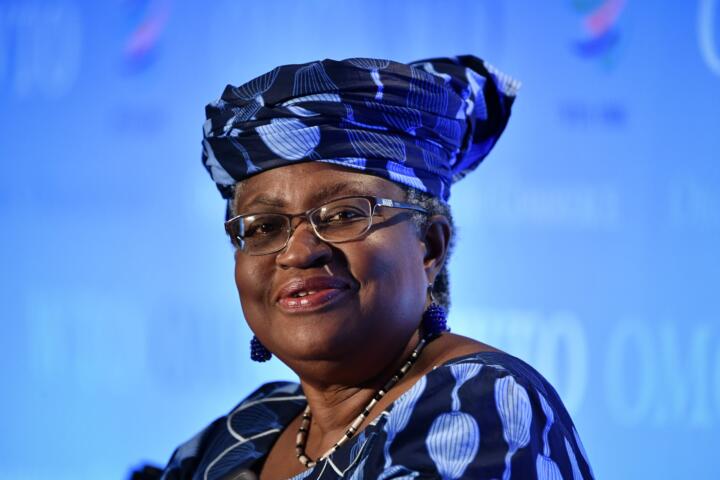The World Trade Organization (WTO) has launched a $50 million fund aimed at supporting women-led businesses and boosting their participation in global trade. The initiative, unveiled at the WTO headquarters in Geneva, is designed to provide direct financial assistance, capacity-building, and market access opportunities for women exporters from developing and least-developed countries.
According to the global trade body, the fund will help women entrepreneurs overcome barriers that have long hindered their ability to compete in international markets, including limited access to finance, inadequate infrastructure, and gender-related trade restrictions. The WTO said that 146 Nigerian women exporters are among the first group of beneficiaries expected to access the fund, making Nigeria one of the countries with the largest number of approved participants.

Speaking at the launch, WTO Director-General Ngozi Okonjo-Iweala stressed that empowering women exporters is crucial to fostering inclusive growth and ensuring that the benefits of global trade reach underserved groups. She explained that the fund would be deployed in collaboration with governments, development partners, and private-sector institutions to maximize impact.
“Trade must work for everyone, and women entrepreneurs are a vital part of that vision,” Okonjo-Iweala stated. “With this fund, we are not just providing finance; we are opening doors to new markets, building resilience, and creating jobs for communities that need them most.”
For Nigerian women exporters, the fund presents a unique opportunity to expand their reach beyond local markets, particularly in sectors such as agro-processing, fashion, textiles, crafts, and digital services where women entrepreneurs are significantly represented. The beneficiaries are expected to receive technical assistance, access to affordable credit, and mentorship to improve the quality of their products and meet international standards.
The Nigerian government has welcomed the initiative, describing it as timely support for women-owned businesses struggling to scale up due to funding constraints. The Minister of Industry, Trade, and Investment, Doris Uzoka-Anite, said Nigeria would work closely with the WTO to ensure effective implementation and monitoring of the programme. She added that the scheme aligns with the government’s agenda to empower women and drive inclusive economic growth.
Trade experts note that women entrepreneurs face more hurdles than their male counterparts in accessing finance, technology, and networks needed for export activities. Studies show that women-owned businesses are less likely to obtain trade finance, with the global trade finance gap currently estimated at $2.5 trillion. In Africa alone, women-led firms are more likely to operate in informal sectors, making it harder to qualify for bank loans and export guarantees.
By addressing these challenges, the WTO’s women exporters fund is expected to not only strengthen individual businesses but also contribute to broader economic development. Analysts say that women reinvest a higher proportion of their income into education, healthcare, and community well-being, meaning that supporting them creates wider social benefits.
The inclusion of 146 Nigerian women highlights the country’s potential to harness the entrepreneurial skills of women for national development. Many of the selected beneficiaries are involved in agriculture and agro-processing, producing items such as shea butter, cocoa products, dried fruits, and spices that have strong demand in global markets. Others are in creative industries such as fashion and leatherwork, which have increasingly attracted international buyers.
International development partners have also pledged to complement the WTO fund with technical expertise and training programmes to ensure sustainability. Organizations such as the International Trade Centre (ITC) and regional development banks are expected to provide additional resources to help beneficiaries navigate international market requirements.
The private sector is also being called upon to play a role in supporting women exporters through partnerships, mentorship, and easier access to supply chains. Large multinational corporations are being encouraged to integrate women-led businesses into their procurement processes, thereby expanding opportunities for small and medium-sized enterprises.
Some Nigerian women entrepreneurs who have been shortlisted expressed optimism that the fund would transform their businesses. They noted that access to finance has been a major obstacle, often limiting production capacity and preventing them from meeting large export orders. With the fund, they hope to purchase modern equipment, improve packaging, and enhance competitiveness in foreign markets.
Observers say the fund could have long-term ripple effects for Nigeria, especially as the country seeks to diversify its economy away from oil. By supporting non-oil exports driven by women, Nigeria could increase foreign exchange earnings, create jobs, and strengthen resilience against external shocks.
Ngozi Okonjo-Iweala emphasized that the initiative is not a one-off gesture but the beginning of a sustained effort to mainstream women into global trade. She urged governments to adopt policies that remove structural barriers facing women exporters, while calling for stronger collaboration between the public and private sectors to sustain the progress.
“The success of this programme will depend not only on the funds provided but on the collective will to create an enabling environment for women to thrive in trade,” she said.
Stakeholders believe that as more women entrepreneurs gain access to international markets, Nigeria and other participating countries will see greater inclusivity in trade-driven growth. The WTO fund, they argue, sends a strong message that women are not just participants but key drivers of economic transformation in the global economy.
Support InfoStride News' Credible Journalism: Only credible journalism can guarantee a fair, accountable and transparent society, including democracy and government. It involves a lot of efforts and money. We need your support. Click here to Donate
